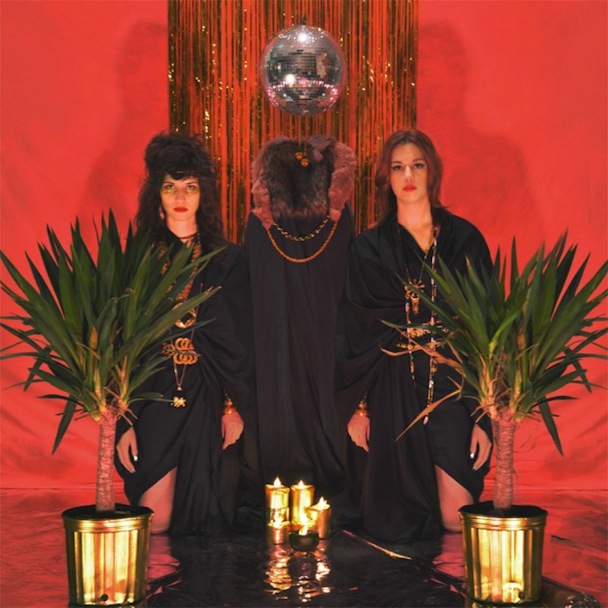There’s a part of me that never wants to let go of long-form rhythmic psychedelia as the pinnacle of emotion-delivering experimentation. The Sunburned Hand of the Mans of the world along with groups like Sun Araw and SubArachnoid Space and Black Dice all provide a sort of deconstructionist musical experience that we mostly attribute to the hallucinogenic implications of “psychedelic,” but that experience can just as easily feel instantly revelatory and unique in the sense of discovery echoing improvisation imbues. However, for that to all to work out you have to be really really good – whatever that means – and, as Gang Gang Dance is starting to find, and Can set the example for long ago, improvisation with some sort mechanism for retroactive focus can result in a more accessible journey through much of the same scenery. In other words, I have no desire to listen to the six hour version of “Yoo Doo Right.”
At first glance, Prince Rama seems cut from the same cloth as a lot of these psychedelic improvers. Yet as their criminally underrated and mostly overlooked 2010 Paw Tracks debut, Shadow Temple, proved with an undercurrent of method to guide a hand dabbling in the type of swampy stew that birth tribal tom-rhythms, whole note synth melodies, guitar treated into vast unrecognition, and delay-soaked vocals, you can reach some pretty transcendental heights. In fact, despite an overt eastern-based worldbeat atmosphere (sisters Taraka and Nimai Larson were raised in a Hare Krishna commune) that remains intrinsic to the Brooklyn band (cut down to a 2-piece with Michael Collins’ departure) , there seems to be a certain attention to tightly executed movement-based songwriting and an ear for synth-based melody that ties them more readily to early Animal Collective than Black Dice as far as Paw Tracks alum go. Though I still feel like both ends of that spectrum are a stretch and it’s perhaps a disservice to write Prince Rama off with reference points. The duo exude an almost post-rock-ian sense of size to the pounding rhythms and the colossal harmony of voices that guide the writhing sonic ceremony.
Trust Now is very much a continuation of Shadow Temple‘s wide-eyed walkabout through cavernous primal reverence. It’s the kind of thing that feels like you’re stumbling headlong through an unrecognizable submerged landscape, confined and narrow, with hands out, eagerly feeling for what’s to come. In this case, in the form of striking tempo and chord changes. It’s also the kind of thing you’ll know immediately if you’re in for the trip or not. The aural and emotional pallet rarely diverges from the bombastic and religious and there’s not a snare drum in sight (Nimai plays a standup kit, automatic cool points). The all-consuming high-pitched vocals invoke the Indian music for which the group is named and the guitar and synthesizer create a vast melodic expanse the thumping and chiming percussion punctuate.
Trust Now doesn’t have the earnestness or perhaps shear quality of songwriting as Shadow Temple, and it feels a bit homogenized where its predecessor felt cohesive. I suppose Prince Rama are somewhat of a known quantity at this point. To their credit, no one is ever going to mistake them for another group of tribal rockers – they’ve managed to create an individual sound out of some travel-worn aesthetics and make it sound like its working for them and not the other way around. But the songs on Shadow Temple often managed to stand alone, while still creating a steady upward climb (ending with the fabulous “Raghupati”). Trust Now is harder pressed for memorability. I certainly can’t say I wasn’t chanting along, fingers to the sky. “Rest In Peace” and “Summer of Love” both boom with ascending vocal and percussion centerpieces and “Trust” and “Golden Silence” both have immaculate ebbing synth and vocal melodies that build into careening satisfying finishes. It’s hard to deny Prince Rama succeed in consistently pulling back the curtain to reveal the type of radiance they’re music seems devoted to. It’s just a matter of whether you’re on board or not.

